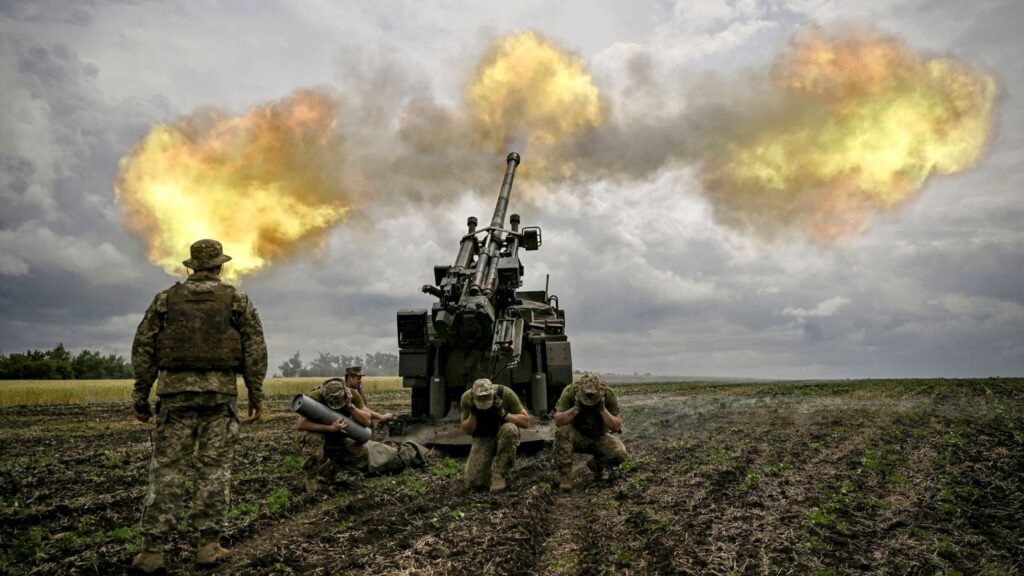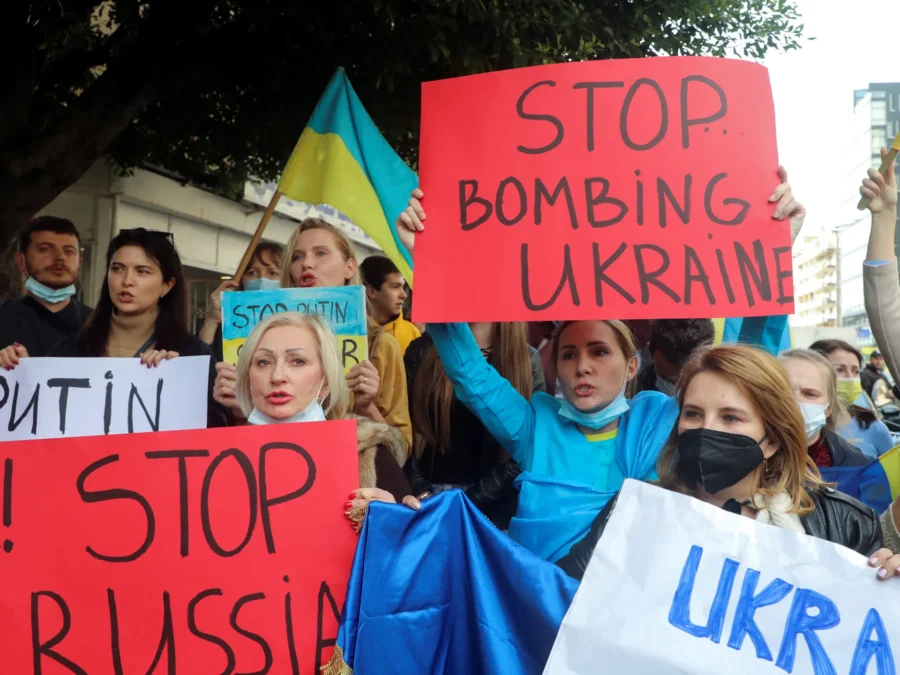The Ukraine-Russia War: A Comprehensive Overview

| Introduction | The Ukraine-Russia War is one of the most significant conflicts of the 21st century, with far-reaching consequences both regionally and globally. What started as political unrest in Ukraine has escalated into a full-scale war, affecting millions of lives and reshaping international alliances. This article will take you through the historical background, key events, and the larger geopolitical and humanitarian impacts of the war. Let’s dive deeper into how this conflict unfolded and its implications for the world.
Historical Context of Ukraine-Russia Relations
Origins of Tensions
The tension between Ukraine and Russia dates back centuries, rooted in cultural, political, and territorial disputes. While both countries share historical ties, these connections have often been marked by conflict and domination, particularly with Ukraine’s long struggle for independence.
The Fall of the Soviet Union
The collapse of the Soviet Union in 1991 was a pivotal moment in Ukraine’s history, leading to its independence. However, the dissolution left lingering tensions, especially as Ukraine sought to align itself with Western powers while Russia tried to maintain its influence in the region.
Post-Soviet Ukraine and Russian Influence
Following independence, Ukraine experienced internal division between those who favored stronger ties with the West and those who leaned towards Russia. This division has been exploited by Russia to maintain a foothold in Ukrainian affairs, setting the stage for future conflicts.
Key Events Leading to the Conflict
Euromaidan Revolution (2013-2014)
The Euromaidan Revolution was a watershed moment that saw Ukrainians protesting against the government’s decision to reject an association agreement with the European Union. The protests eventually led to the ousting of pro-Russian President Viktor Yanukovych, intensifying tensions with Moscow.
Annexation of Crimea (2014)
Russia’s annexation of Crimea in 2014 marked a major escalation in the conflict. The move was widely condemned by the international community, but Russia justified it by citing the region’s historical ties to Russia and the need to protect its ethnic Russian population.
War in Donbas (2014-Present)
Around the same time, Russian-backed separatists in the Donbas region of eastern Ukraine declared independence, sparking a war that continues to this day. The Donbas conflict has resulted in thousands of deaths and the displacement of millions, making it a prolonged and deadly chapter in the Ukraine-Russia war.
The 2022 Escalation
Russia’s Full-Scale Invasion (February 2022)
In February 2022, Russia launched a full-scale invasion of Ukraine, citing security concerns and the need to “denazify” the country. This invasion has been the most significant military operation in Europe since World War II and has drawn widespread condemnation from around the globe.
Ukraine’s Resistance and International Support

Despite being outgunned, Ukraine’s military, bolstered by the support of Western nations, has shown remarkable resistance. International military aid, including weapons and intelligence support, has been crucial in slowing Russia’s advance.
Geopolitical Impacts of the Ukraine-Russia War
Impact on NATO and EU
The war has led to a reinvigoration of NATO, with member countries increasing their defense budgets and deploying forces to Eastern Europe. Ukraine’s conflict has also strengthened its ties with the European Union, with discussions around potential EU membership gaining momentum.
Russian Sanctions and Economic Fallout
The West has imposed crippling economic sanctions on Russia, targeting its energy exports, financial institutions, and key industries. These sanctions have caused significant economic damage to Russia, but they have also had ripple effects across global markets.
Global Energy Crisis
Russia is one of the world’s largest energy suppliers, and the war has triggered a global energy crisis. Europe, heavily reliant on Russian gas, has faced energy shortages, driving up prices and leading to economic slowdowns.
Humanitarian Crisis and Casualties
Civilian Suffering and Displacement
The human toll of the Ukraine-Russia war is staggering. Millions of Ukrainians have been displaced, with many seeking refuge in neighboring countries. Civilians in conflict zones face constant threats of shelling, lack of food, and basic medical supplies.
International Aid and Support
Global humanitarian organizations
have stepped in to provide aid to those affected by the conflict. Countries have opened their borders to refugees, and relief efforts have been ongoing, though challenges remain in getting aid to war-torn areas.
Propaganda and Information Warfare
Russia’s Use of Disinformation
Throughout the conflict, Russia has employed propaganda and disinformation tactics to shape public opinion, both domestically and internationally. These efforts are designed to justify its actions and undermine Ukraine’s narrative.
Ukraine’s Media Strategy
Ukraine, on the other hand, has effectively used social media and international news outlets to garner global support. Its president, Volodymyr Zelensky, has been a key figure in rallying international sympathy and aid through powerful speeches and media appearances.
Ukraine’s Push for Sovereignty and International Alliances
Growing Relations with the West
Ukraine’s relationship with Western countries has strengthened significantly since the war began. The country is receiving unprecedented military and financial support from the US, EU, and other nations, as it seeks to protect its sovereignty.
Ukraine’s Pursuit of NATO Membership
One of Ukraine’s long-term goals is to join NATO, a move that has been met with fierce opposition from Russia. NATO membership would provide Ukraine with additional security guarantees, but it remains a contentious issue in the broader geopolitical landscape.
Russia’s Motivations and Goals in Ukraine
Territorial Control
Russia’s primary goal in Ukraine appears to be territorial control, particularly in the eastern regions and Crimea. Securing these territories allows Russia to maintain a strategic advantage and influence over Ukraine’s political direction.
Strategic Importance of Ukraine
Ukraine’s geographic location makes it strategically important for Russia. Control over Ukraine would provide Russia with a buffer zone against NATO and secure its access to the Black Sea, critical for military and economic purposes.
Potential Outcomes and Resolutions
Negotiation Prospects
While multiple ceasefires and negotiations have been attempted, a lasting peace remains elusive. Both sides have firm demands that are unlikely to be met in the short term, leaving the conflict in a precarious position.
Long-Term Impact on Global Politics
The Ukraine-Russia war will undoubtedly have a lasting impact on global politics. It has reshaped alliances, highlighted the importance of energy independence, and exposed vulnerabilities in international peacekeeping mechanisms.
Conclusion
The Ukraine-Russia war has brought immense suffering and altered the global political landscape. While the conflict continues to rage on, the international community remains hopeful for a peaceful resolution. The road to peace, however, is fraught with challenges, and the outcome of this war will shape the future of Europe and beyond.



